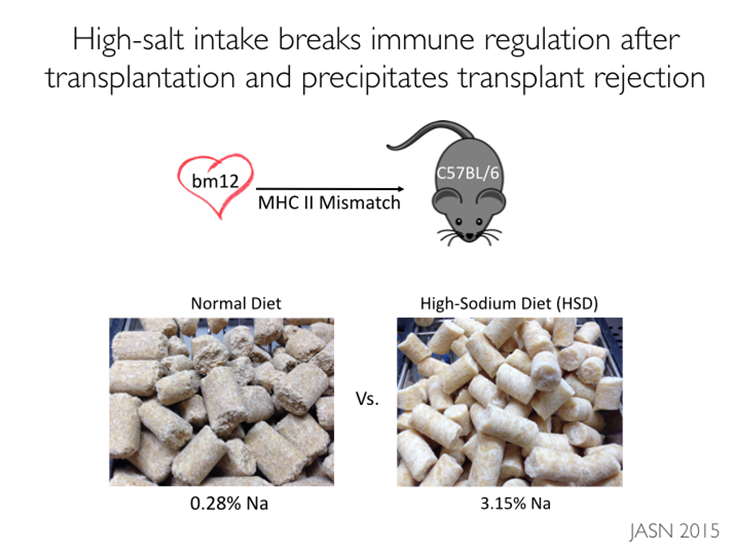A high-salt diet (HSD) in humans is linked to a number of complications, including hypertension and cardiovascular events. Whether a HSD affects the immune response in transplantation is unknown. Using a murine transplantation model, we investigated the effect of NaCl on the alloimmune response in vitro and in vivo. Incremental NaCl concentrations in vitro augmented T cell proliferation in the settings of both polyclonal and allospecific stimulation. Feeding a HSD to C57BL/6 wild-type recipients of bm12 allografts led to accelerated cardiac allograft rejection, despite similar mean BP and serum sodium levels in HSD and normal salt diet (NSD) groups. The accelerated rejection was associated with a reduction in the proportion of CD4+Foxp3+ regulatory T cells (Tregs) and a significant decrease in Treg proliferation, leading to an increased ratio of antigen-experienced CD4+ T cells to Tregs in mice recipients of a HSD compared with mice recipients of a NSD. Because serum- and glucocorticoid-regulated kinase-1 (SGK1) has been proposed as a potential target of salt in immune cells, we fed a HSD to CD4CreSGK1fl/fl B6-transplanted recipients and observed abrogation of the deleterious effect of a HSD in the absence of SGK1 on CD4+ cells. In summary, we show that NaCl negatively affects the regulatory balance of T cells in transplantation and precipitates rejection in an SGK1-dependent manner.
Safa K, Ohori S, Borges TJ, Uehara M, Batal I, Shimizu T, Magee CN, Belizaire R, Abdi R, Wu C, Chandraker A, Riella LV. J Am Soc Nephrol. 2015 Apr 1
In the news: link

